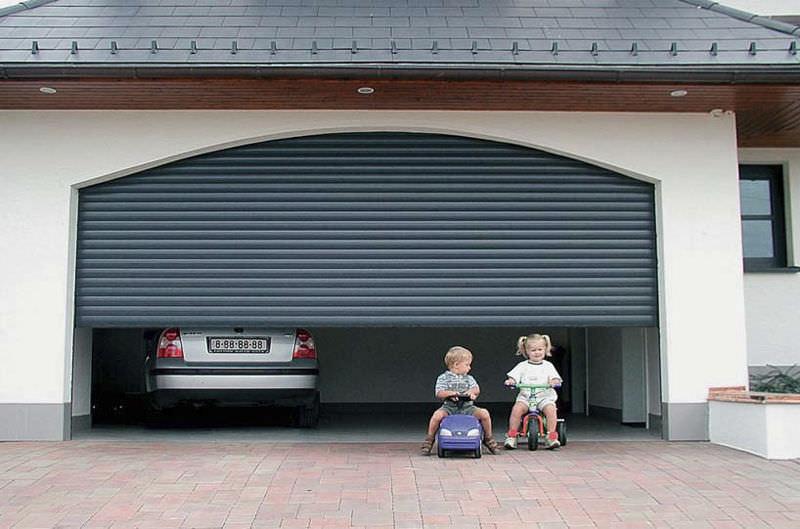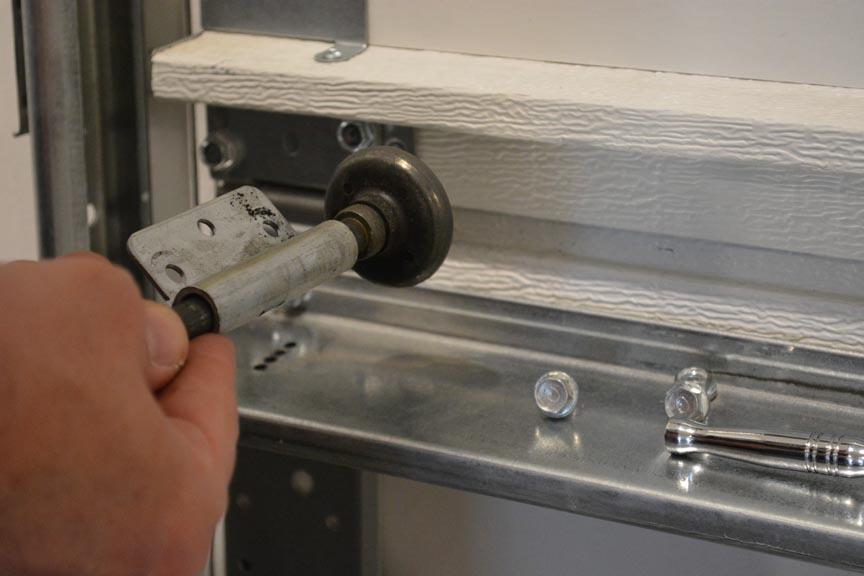Having a roll-up garage door that is hard to open can be frustrating and inconvenient. If you’re experiencing difficulties with your garage door, you’re not alone. Many homeowners face this issue at some point, and it’s essential to understand the common causes and how to fix them. In this article, we will explore the various reasons why roll up garage door hard to open and provide practical solutions to help you address the problem.

1. Lack of Lubrication: A Potential Culprit
When it comes to roll-up garage doors, insufficient lubrication can lead to difficulty in opening and closing. Over time, the moving parts of the door can accumulate dust, debris, and rust, causing friction and resistance. This friction hampers the smooth operation of the door, making it harder to open.
Solution: Regular Lubrication Maintenance
To combat this issue, it is crucial to perform regular lubrication maintenance on your roll up garage door. Use a high-quality silicone or lithium-based lubricant and apply it to the hinges, springs, rollers, and tracks. Lubrication helps reduce friction and ensures smooth movement, making it easier to open and close the door.
2. Damaged Rollers and Tracks: An Obstacle
Rollers and tracks play a vital role in the proper functioning of a roll-up garage door. However, these components are susceptible to damage and wear over time. Bent or misaligned tracks, as well as worn-out rollers, can impede the door’s movement, making it hard to open.
Solution: Repair or Replacement of Rollers and Tracks
Inspect the rollers and tracks for any signs of damage, such as dents, bends, or excessive wear. If you notice any issues, it’s advisable to repair or replace the affected parts. Contact a professional garage door technician who can assess the situation and provide the appropriate repairs or replacements to restore the smooth operation of your roll-up garage door.

3. Tension Spring Issues: A Common Cause
Tension springs are responsible for counterbalancing the weight of the garage door, making it easier to open and close. However, if the tension springs are damaged or worn out, they can lose their effectiveness, leading to a hard-to-open garage door.
Solution: Tension Spring Adjustment or Replacement
If you suspect tension spring issues, it’s essential to seek professional assistance. Garage door technicians have the expertise and tools necessary to adjust or replace tension springs safely. Attempting to adjust or replace them yourself can be dangerous, as these springs are under high tension and can cause serious injury if mishandled.
4. Motor or Opener Malfunction: Electrical Troubles
Sometimes, the culprit behind a hard to open roll up garage door lies in the motor or opener. Electrical issues or motor malfunctions can disrupt the door’s smooth operation, making it difficult to open or close.
Solution: Motor or Opener Inspection and Repair
If you suspect an issue with the motor or opener, it’s best to contact a professional garage door technician for a thorough inspection. They can identify any electrical problems, malfunctions, or wiring issues and provide the necessary repairs or replacements to restore proper functionality to your roll-up garage door.
5. Misaligned or Imbalanced Door: A Common Problem
A misaligned or imbalanced garage door can make it hard to open or close smoothly. If the door is not properly aligned with the tracks or if the weight is distributed unevenly, it can put additional strain on the system, resulting in difficulty when operating the door.
Solution: Realignment and Balancing
To address misalignment or imbalance, it’s advisable to consult a professional garage door technician. They can assess the door’s alignment, adjust the tracks, and balance the weight distribution to ensure smooth operation. This will alleviate the difficulty you experience when opening or closing your roll-up garage door.
Conclusion
Dealing with a roll up garage door hard to open can be a frustrating experience. However, by understanding the common causes and implementing the appropriate solutions, you can overcome this issue. Regular lubrication, repairing or replacing damaged rollers and tracks, adjusting or replacing tension springs, inspecting and repairing motor or opener malfunctions, and realigning and balancing the door are all effective measures to restore smooth operation to your roll-up garage door.
Remember, when it comes to garage door issues, it is always recommended to seek professional assistance. Garage door technicians have the expertise and knowledge to handle complex repairs and ensure the safety of both you and your garage door.
FAQs
It is recommended to lubricate your roll-up garage door at least twice a year or more frequently if you notice any signs of increased friction or difficulty in opening.
While some minor roller and track issues can be addressed by homeowners, it is generally advisable to seek professional help for proper assessment and repair to avoid further damage.
Signs of tension spring issues include the door being difficult to open, closing too quickly, or appearing unbalanced. If you notice any of these signs, it’s best to contact a professional.
It is recommended to have your motor or opener inspected by a professional technician annually to identify any potential issues and ensure optimal performance.
Realignment and balancing require specific knowledge and expertise. It is safer and more effective to hire a professional garage door technician for these tasks.



Leave a Reply